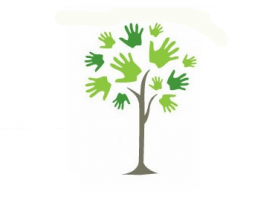by Chloe Learey
 Today, there is a focus at both the national and state level on how best to support early childhood education and services so that our youngest citizens have the best possible foundation to develop optimally. President Obama talked about early childhood education in his state of the union address, Governor Shumlin commissioned an Early Childhood Framework and Action Plan which was published on March 28th, and the state of Vermont is the recipient of a Race to the Top Early Learning Challenge Grant which will bring $36.9 million dollars to the state over the next four years to bolster the infrastructure of early childhood services and education.
Today, there is a focus at both the national and state level on how best to support early childhood education and services so that our youngest citizens have the best possible foundation to develop optimally. President Obama talked about early childhood education in his state of the union address, Governor Shumlin commissioned an Early Childhood Framework and Action Plan which was published on March 28th, and the state of Vermont is the recipient of a Race to the Top Early Learning Challenge Grant which will bring $36.9 million dollars to the state over the next four years to bolster the infrastructure of early childhood services and education.
Why is early childhood such an important time of life? Studies show that a child’s earliest experiences determine how well that child will succeed in school and how healthy and productive they will be as adults. That’s because 90 percent of the brain’s foundation for all future learning and social-emotional development is built in the first five years of life. This is especially critical for children who are at risk due to their environments; with research showing a 6 to 10 percent return on investment for every dollar spent in creating quality early childhood services. Defining and understanding “quality” is an essential part of the equation.
How do we recognize quality? There are standards for early childhood education that include programs being licensed by the state, as well as a voluntary quality rating system, StARS, which goes beyond complying with regulations and examines a programs efforts at working with families, qualifications of staff, and participation in the professional community. Another indicator of a quality program is accreditation by the National Association for the Education of Young Children (NAEYC).
Early childhood education is not day care or childcare. Rather it is education. “But they’re just playing all day!” Yes, young children are playing, which is how they learn. Teachers who understand child development can create an environment and a curriculum which maximizes the learning that children can accomplish – the sand table turns into a science lesson, the baking project teaches math, and asking open-ended questions helps develop language and critical thinking skills. Early childhood education is not just about pre-academic skills. Social-emotional skills such as learning how to take another person’s point of view and how to deal with being frustrated are also critical to future success. Being able to develop these skills early in life when the brain is the most malleable is a significant part of the foundation we can create through quality early childhood education.
There are certainly “day care” and “child care” programs that exist, where children are kept safe and unintentional learning happens. However, early education should be the goal. Children who participate in a quality early education reap the benefits for the rest of their lives, becoming more competent readers and writers, more successful high school students, and healthier, more productive adults. In fact a quality pre-school program can off-set the detrimental effects of less stable aspects of a young child’s life. That is why supporting bills such as H. 270, a bill that give all children ages three, four and five in Vermont access to quality pre-kindergarten education, are so important. We have a responsibility to ourselves and to our children to help them develop a strong mental foundation so they can succeed.
Professionals who work with young children and their families have some of the most challenging and important work to do. Part of the challenge lies in the fact that you cannot go into this work because you like children – in fact, you have to like adults, too. Young children are part of families, and helping parents and caregivers understand their children so that they can best support their development is essential. This requires some understanding of how adults learn, how family dynamics work, and how to create a positive relationship with other people in addition to knowing about child development. Quality early childhood services approach working with families with young children as a partnership, helping to build capacity for supporting the optimal development of our youngest citizens so that they can thrive.
We need to not only understand why the earliest years of a child’s life are so important to the rest of their lives, but also ensure we do all we can to support them. That is why NAEYC has proclaimed April as the “Month of the Young Child,” an ideal time to highlight the importance of this critical period of life.
Chloe Learey is the executive director of the Winston Prouty Center for Child Development in Brattleboro. The
Center will be celebrating its 45th anniversary at the upcoming “25th and FINAL Taste of the Town” fundraiser on May 10, 2014. For more information, visit winstonprouty.org



